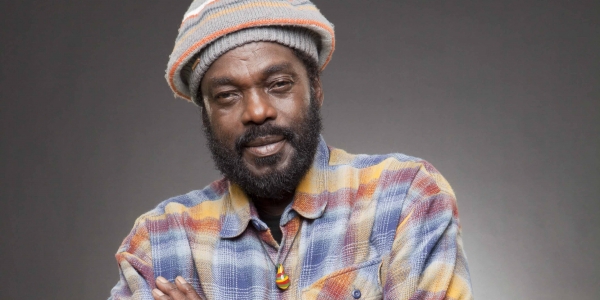“We love it all the time, man. We love this music, we love playing it,” Barrett says, speaking in a relaxed Jamaica drawl. “The reggae music is an international language; voice of the people.”
It’s no surprise that audiences continue to flock to hear uplifting Bob Marley and The Wailers classics such as Redemption Song and Is This Love played live, but how does the band maintain the music’s original spirit and vitality? Well, Barrett and his accomplished associates don’t have to strain too hard to match the messages in Marley’s songs with issues in contemporary society.
“We get inspiration by the time we are living in, experiences, what is going on across the globe. These lyrics, they’re our realities and we love to tell it like it is – uncut, without commercials,” Barrett says. “This message is for all ages. It’s for past, present and the future. The Almighty inspired us to give these words and play this type of music, which is the reggae.”
It’s well-known that Bob Marley was a devout follower and advocate of the Rastafari way of life. The Rastafari movement, an Ethiopian-inspired offshoot of Christianity, is closely tied to the development of reggae music and the ideology features prevalently in Marley’s lyrics. Barrett too has a spiritual predilection, which has motivated him throughout his longstanding position in The Wailers.
“All of our songs are redemption songs. Exodus: ‘Movement of Jah people.’ We will be forever loving Jah,” he says, borrowing a Marley lyric. “This music is coming from the throne of King David and King Solomon and it’s coming also from the Psalms. And we are the archangels chosen from the heavens to come down to Earth and perform these miracles.”
Whether or not you’re prepared to agree with Barrett’s weighty assertion, the enriching quality of Marley’s music is hard to deny. However, Barrett’s time leading The Wailers hasn’t entirely been characterised by peace, love and understanding. The bassist has received no royalties since Marley’s death and consequently he’s been in a legal dispute with the Marley family for a number of years. His legal demands haven’t yet been met.
“Bob’s family, the Marleys, they have everything in their custody, but I am the producer and the arranger for the albums,” he says. “Universal [Records], they’re a good company. The family, I have to wait around for them to do the proper things.”
No matter how complicated the legal situation is, Barrett can’t be dissuaded from performing the songs. The Wailers come to Australia to celebrate 30years since the release of the best-of compilation Legend (one of the highest selling albums of all time). To mark the milestone, they’ll be playing the album from start to finish at their Australian shows.
“What we always say [is] that some is leaves and some is branches but I and I is the root. Keep the music in the authentic style and way,” Barrett explains. “To all you fans in Australia, Family Man and the Wailers is coming your way. We want you all to come out at the shows – come out early and stay late.”
The band are no strangers to our shores, having toured with Marley way back in 1979 and returning several times since. Projecting the eternal message of Marley’s tunes is one reason for coming here, but there’s a few other things luring Barrett Down Under.
“[Coming to Australia] is a treat every time. Last time in Australia I remember going up into the rainforest in Queensland where I eat some sweet potato which I don’t have to cook. A special kind of sweet potato, in Queensland in that rainforest, it was very fruitful. We spent most of the time in Sydney at the beach front.”
The Wailers perform at Bluesfest’s 25th anniversary event as well as a string of headline shows around the country with fellow Jamaican musical luminaries Sly & Robbie. Jamaica has given birth to some very liberated music, but the Caribbean nation still has its fair share of social unrest and violent crime. The Wailers remains a politically active force, currently driving the World Food Program’s ‘I Went Hungry’ campaign, which essentially takes money intended to stock musicians’ excessive backstage riders and put it towards feeding those in dire need. In addition to their philanthropic efforts, Barrett believes something vitally important is presented on stage every night.
“It’s good to let them all know that this music is so special. Coming from our little island, Jamaica, and spread globally. It’s not like any other – it’s Jah music. Reggae music is the art of the people, the universal language that is loved globally. If you have reggae feeling in you, you have to move your feet. ‘One good thing about music,’” sings Barrett, ‘when it hits, you feel no pain.’ So why worry? Be happy.”
BY AUGUSTUS WELBY







